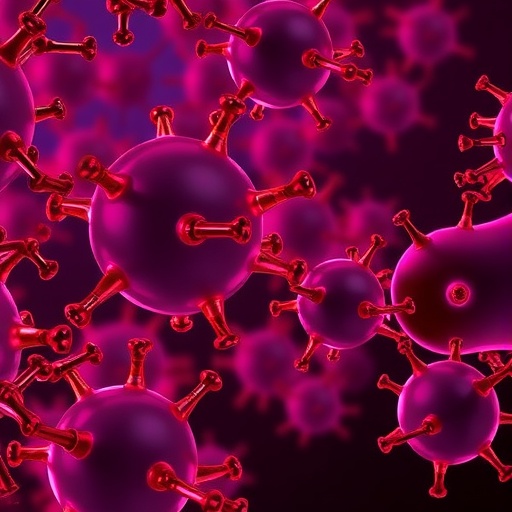The intricate world of cellular processes has long fascinated scientists, particularly the mechanisms through which cells govern life and death. At the forefront of this field are caspases, a subset of cysteine proteases that play critical roles in mediating cell death and inflammation. Traditionally classified into two categories—apoptotic and inflammatory—recent research suggests that such a dichotomy may be overly simplistic and not reflective of the nuanced roles these proteins play within mammalian cells. This re-evaluation stems from findings that reveal the extraordinary complexity involved in cellular death.
Caspases have been traditionally viewed as the arbiters of apoptosis, orchestrating a cellular self-destruction program vital in maintaining tissue homeostasis. However, accumulating evidence indicates that apoptotic caspases are considerably more than mere executors of cell death. Instead, they have been shown to regulate the interplay between different cell death pathways and modulate the microenvironment to either promote or inhibit the progression of cell demise. Such revelations have led many researchers to ponder whether apoptotic caspases might also function as regulators of inflammatory responses.
The relationship between caspases and inflammation is particularly intriguing. While it has been long accepted that inflammatory caspases contribute to the activation of pro-inflammatory responses, there is a growing body of literature supporting the notion that apoptotic caspases are capable of counteracting inflammation. For instance, several studies have demonstrated that these caspases, especially in the context of programmed cell death, can influence the release of pro-inflammatory cytokines. This suggests a paradoxical role, where apoptotic caspases not only facilitate cell death but simultaneously inhibit inflammatory pathways, further complicating their classification.
The dual role of caspases highlights the importance of context when examining their functions. Different stimuli can elicit divergent pathways, leading to cellular outcomes that may or may not align with traditional expectations. One significant finding is that while apoptotic pathways are generally associated with cell demise, they can also initiate protective mechanisms, preserving cellular integrity under stress. This adaptive response underscores the necessity for researchers to consider these multiple roles when investigating cellular responses to various perturbations.
Moreover, the understanding of caspases has expanded beyond simple apoptotic and inflammatory classifications, delving into their involvement in non-apoptotic forms of cell death, such as necroptosis and pyroptosis. These insights reveal a complex network wherein caspases interact with various signaling pathways to facilitate distinct death modalities. Importantly, this complexity may have significant implications for therapeutic interventions in diseases characterized by dysregulated cell death and inflammation, such as cancer and autoimmune disorders.
Experimental models have been integral in elucidating these novel roles of caspases. By employing genetic models, researchers have disrupted the expression of specific caspases to observe resultant changes in cellular functions. Such studies have frequently revealed that caspases once regarded purely as executors of apoptosis can possess protective roles during inflammatory responses, challenging the notion of their deterministic categorization.
Furthermore, the regulation of inflammatory processes by caspases is not merely a byproduct of their involvement in apoptosis but rather an evolved function that promotes organismal homeostasis. This intricate balance highlights the significance of caspase-mediated pathways in maintaining tissue integrity amidst potential inflammatory damage. The precise modulation of these pathways demonstrates an evolutionary adaptation aimed at maximizing survival in the face of cellular stressors.
In light of these developments, the scientific community is urged to re-evaluate the foundational understanding of caspases. There is a pressing need for more comprehensive studies to elucidate the specific mechanisms through which these enzymes exert their dual roles. Such insights will be crucial for harnessing the therapeutic potential of caspases in clinical settings, especially considering their involvement in a plethora of diseases marked by inflammation.
Consequently, ongoing research into caspase signaling pathways may yield promising avenues for innovative therapeutic strategies. By leveraging a deeper understanding of these proteases, researchers could design interventions that either promote or inhibit specific caspase activities, tailoring treatments for conditions characterized by excessive inflammation or unchecked cell death. Thus, the study of caspases stands at a crossroads where basic research meets potential clinical application.
In summary, the exploration of caspases is revealing a vibrant and dynamic landscape in which these cysteine proteases assume multiple roles that extend beyond classic apoptotic functions. The substantial evidence of their involvement in regulating inflammatory processes emphasizes the need for a paradigm shift in how we conceptualize these essential proteins. As research in this domain continues to unfold, it is poised to uncover novel insights that spotlight the dualistic nature of caspases in health and disease, paving the way for transformative therapeutic approaches in the future.
In conclusion, as our understanding of caspases evolves, so too does our perception of cell fate and the intricate mechanisms governing inflammation. Moving forward, researchers remain committed to diving deeper into this complex interplay, aiming to unravel the finer details of caspase function and its implications for cellular health, homeostasis, and therapeutic intervention.
Subject of Research: Regulation of inflammatory processes by caspases.
Article Title: Regulation of inflammatory processes by caspases.
Article References:
Beltrán-Visiedo, M., Soler-Agesta, R., Sarosiek, K.A. et al. Regulation of inflammatory processes by caspases. Nat Rev Mol Cell Biol 26, 884–901 (2025). https://doi.org/10.1038/s41580-025-00869-6
Image Credits: AI Generated
DOI: https://doi.org/10.1038/s41580-025-00869-6
Keywords: Caspases, apoptosis, inflammation, cysteine proteases, cell death, immune response, signaling pathways, therapeutic implications.
Tags: caspases and inflammationcaspases in disease pathologycell death mechanismscellular processes in apoptosiscomplexity of cell death pathwayscysteine proteases functiondual role of caspasesinflammatory response regulationmodulation of microenvironment by caspasesrecent research on caspasesrole of apoptotic caspasestissue homeostasis and caspases





